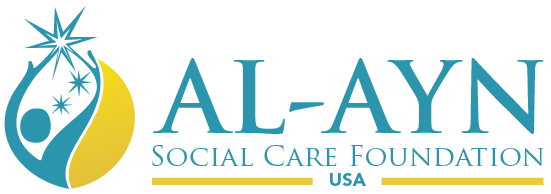 Donate
Donate
 Donate
Donate
Surplus
Deductions
Total amount subject to Khums $0
Khums Due $0
Sahm al Imam to be paid $0
Sahm al Sada to be paid $0
Ramadan, the holiest month in the Islamic calendar, is not only a time of fasting and spiritual reflection but also a period that emphasizes the importance of charity and giving back to the community. As Muslims around the world observe fasting from dawn till dusk, they are reminded of the significance of compassion, empathy, and generosity towards those in need. In this blog, we will delve into the importance of charity and donating during Ramadan, exploring the teachings and virtues that this sacred month embodies.
Ramadan is a time of spiritual purification and self-discipline, where Muslims strive to strengthen their connection with Allah (SWT) and practice selflessness. One of the fundamental teachings of Ramadan is the emphasis on charity and helping those less fortunate. It encourages individuals to look beyond their own needs and extend a helping hand to those in need. Through acts of charity, Muslims express gratitude for their blessings and demonstrate compassion towards others, embodying the values of empathy and kindness.
Charity holds a special significance during Ramadan, as it is believed that the rewards for good deeds are multiplied during this blessed month. Muslims are encouraged to engage in various forms of charity, including providing food to those in poverty, and offering financial assistance to those in need. The act of giving during Ramadan is not only a means of fulfilling religious obligations but also a way to purify one’s wealth and seek spiritual rewards.
Ramadan donation drives and charity initiatives are common during this month, with individuals and organizations coming together to support those in need. From organizing iftar meals for the fasting to distributing food packages to families struggling due to poverty and humanitarian crises, Ramadan donation efforts play a crucial role in alleviating hunger and poverty within communities. Additionally, many Muslims choose to fulfil their Zakat obligations during Ramadan, as it is believed to be a time of increased blessings and divine mercy.
Zakat, one of the Five Pillars of Islam, is a mandatory form of charity that requires Muslims to donate a portion of their wealth to those in need. While zakat can be given at any time throughout the year, many Muslims prefer to fulfil this obligation during Ramadan due to the spiritual significance of the month. By giving zakat during Ramadan, Muslims purify their wealth and seek forgiveness, while also providing essential support to the less fortunate members of society.
Zakat Al-Fitra is a payment obligatory on every Muslim who is mature (baligh), sane, conscious, and financially capable (i.e., able to meet the living expenses of themselves and their family for one year, or has an occupation through which they are able to meet that). Zakat Al-Fitra should also be paid on behalf of all dependents, young or old. Zakat Al-Fitra can be paid anytime during the month of Ramadhan, up to noon on the day of Eid (or up to the prayer of Eid for those praying it).
In addition to Zakat, Ramadan is also a time when Muslims fulfill other religious dues such as Sadaqa, Fidya, Kaffarah, and Khums, further emphasizing the importance of giving during this blessed month.
Sadaqa, which refers to voluntary acts of charity, holds great significance in Islam. Muslims are encouraged to give Sadaqa generously throughout the year, but during Ramadan, the rewards for such acts are believed to be multiplied. Sadaqa can take various forms, including giving money to the needy, providing food to the hungry, or supporting charitable projects and initiatives.
Fidya is a compensation for not completing an obligatory fast for a legitimate reason and 750 grams of food (rice) must be given to a needy person. Kaffarah is a payment that needs to be made when committing certain acts, such as deliberately missing a fast with full knowledge of its obligation or breaking an oath.
The Kaffarah amount for deliberately missing a fast is 750 grams of food (rice) to 60 poor, needy people, equal to 45kg in total. Al-Ayn is authorized to collect Kaffarah and has calculated the amount as £50/$54.27 for each day that a fast is deliberately missed or broken.
Khums, another religious obligation in Islam, involves giving a portion of one’s income or earnings to support religious and charitable causes. Khums is typically divided into two parts: Sahm al-Imam, and Sahm al-Sada. Al-Ayn has special authorization from Al-Sayyid Al-Sistani to spend 100% of your Khums on orphaned children living in poverty. This Ijaza has been signed and stamped directly by His Eminence himself.
The act of donating during Ramadan extends beyond financial contributions, encompassing acts of kindness, compassion, and service to others. Whether it’s volunteering, organizing a donation drive, or simply offering assistance to someone in need, every act of generosity is valued and rewarded during this sacred month. By participating in charitable activities, Muslims contribute to building stronger, more compassionate communities.
Ramadan serves as a reminder of the importance of charity and giving back to the community. Through acts of kindness, compassion, and generosity, Muslims seek to embody the teachings of Islam and make a positive impact on the lives of others. Whether it’s through financial donations, volunteer work, or simple acts of kindness, the act of giving during Ramadan brings about unity, compassion, and solidarity within communities. As we observe this sacred month, let us remember the profound importance of charity and donating, and strive to make a difference in the lives of those less fortunate.
This Ramadan, Al-Ayn is working to provide orphaned children in need with vital medical support and nutritional food. Donate now.